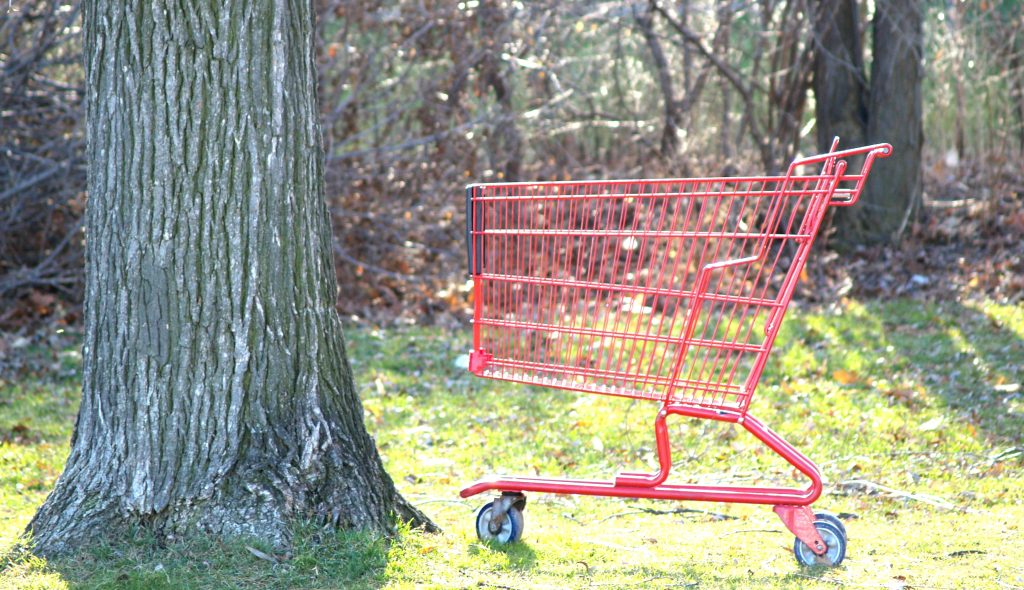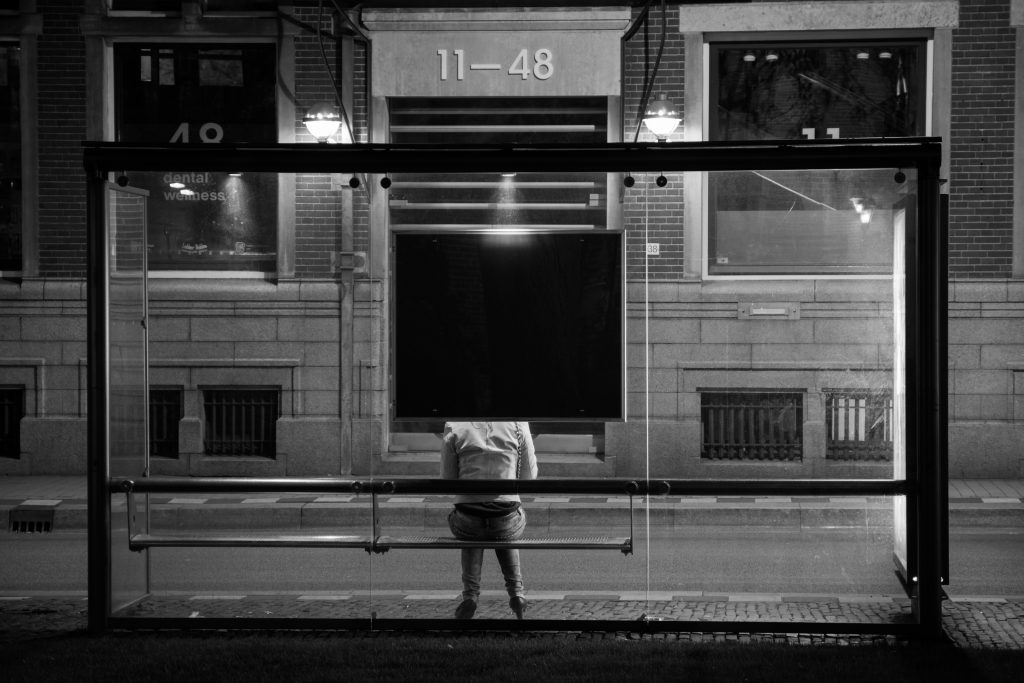 It is common for Louisiana residents who are injured due to another person’s negligence to seek financial compensation through a personal injury lawsuit. Typically, these types of lawsuits will pursue compensation to cover medical expenses that are incurred by the victim for the treatment of the injury they suffered, among other damages. That is exactly the approach that Destiny Guidry decided to take after she claimed that she was injured in an incident at a grocery store in Lake Charles back in 2011.
It is common for Louisiana residents who are injured due to another person’s negligence to seek financial compensation through a personal injury lawsuit. Typically, these types of lawsuits will pursue compensation to cover medical expenses that are incurred by the victim for the treatment of the injury they suffered, among other damages. That is exactly the approach that Destiny Guidry decided to take after she claimed that she was injured in an incident at a grocery store in Lake Charles back in 2011.
According to Ms. Guidry, she was injured on June 14, 2011, when she was struck by a stock cart that was loaded with canned goods. The stock cart was under the control of a store employee, Kenneth Wyant. Mr. Wyant did not deny that there was an incident in which he claimed he had to stop the stock cart suddenly, resulting in some cans potentially hitting Ms. Guidry on the leg. But, he did deny that Ms. Guidry was injured in any significant way. Ms. Guidry, on the other hand, claimed that she suffered a serious injury to her ankle in this incident, resulting in a trip to the emergency room four days later on June 18, 2011, and again on June 28, 2011. Then, in March of 2013, 21 months after the incident in the grocery store, Ms. Guidry ultimately had surgery on her ankle. Ms. Guidry filed a personal injury lawsuit against the grocery store and the store employee, Mr. Wyant. The case was tried before a jury.
The first question for the jury was whether the store employee, Mr. Wyant, was at fault for the incident that occurred at the grocery store on June 14, 2011. The jury answered “no” to this question, ending deliberations. Before the case was dismissed with prejudice, i.e., the claim was foreclosed from ever being brought in court again, Ms. Guidry asked the Trial Court for a “judgment notwithstanding the verdict.” This is a legal procedure whereby a party asks the court to enter a judgment that is different from the jury’s conclusion on the basis that the jury made a manifest error in reaching its conclusion. In this case, Ms. Guidry claimed that the manifest error was the jury’s finding that Mr. Wyant was not at fault for the incident on June 14, 2011, especially since Mr. Wyant had not denied that some type of incident had in fact occurred, which was supported by corroborating testimony. The Trial Court denied Ms. Guidry’s motion and she appealed to the Louisiana Third Circuit Court of Appeal.
 The following case dives into the world of “slip and fall” lawsuits in Louisiana, where the law sets specific requirements for holding merchants liable for injuries on their premises.
The following case dives into the world of “slip and fall” lawsuits in Louisiana, where the law sets specific requirements for holding merchants liable for injuries on their premises. Louisiana Personal Injury Lawyer Blog
Louisiana Personal Injury Lawyer Blog


 When accidents occur on a construction site, questions of liability and responsibility arise, leaving property owners wondering about their potential legal obligations. In a compelling lawsuit from Alexandria, Louisiana, the issue of whether a homeowner can be held liable for injuries sustained by a roofer while working on their property takes center stage. The case of Robert Schram v. Ronnie Waters provides valuable insights into this perplexing matter, shedding light on the factors determining a homeowner’s liability when a roofer falls from their roof.
When accidents occur on a construction site, questions of liability and responsibility arise, leaving property owners wondering about their potential legal obligations. In a compelling lawsuit from Alexandria, Louisiana, the issue of whether a homeowner can be held liable for injuries sustained by a roofer while working on their property takes center stage. The case of Robert Schram v. Ronnie Waters provides valuable insights into this perplexing matter, shedding light on the factors determining a homeowner’s liability when a roofer falls from their roof. The majority of states have what are known as “dram shop laws”. These laws address liability if someone is injured by a drunk person after consuming alcohol at an establishment. Most of these laws allow for the bar or other entity that served alcoholic beverages to be sued. Louisiana’s version of the law is quite unique, actually doing the opposite. The bar or other business must meet certain requirements to be afforded this essential immunity. The Fifth Circuit Court of Appeal in Louisiana recently considered such a situation.
The majority of states have what are known as “dram shop laws”. These laws address liability if someone is injured by a drunk person after consuming alcohol at an establishment. Most of these laws allow for the bar or other entity that served alcoholic beverages to be sued. Louisiana’s version of the law is quite unique, actually doing the opposite. The bar or other business must meet certain requirements to be afforded this essential immunity. The Fifth Circuit Court of Appeal in Louisiana recently considered such a situation.  Sometimes, whether your case takes place in federal court or state court may be out of your hands entirely. Other times, it may be possible for the case to take place in either court. In such situations, it is important to understand possible differences and advantages between state and federal court. When one party wants the case in federal court and the other wants it in state court, things can get tricky, as a 2017 case from the United States Court of Appeals for the Fifth Circuit shows.
Sometimes, whether your case takes place in federal court or state court may be out of your hands entirely. Other times, it may be possible for the case to take place in either court. In such situations, it is important to understand possible differences and advantages between state and federal court. When one party wants the case in federal court and the other wants it in state court, things can get tricky, as a 2017 case from the United States Court of Appeals for the Fifth Circuit shows. Going to the grocery store is a frequent occurrence for most of us. However, most people are probably not aware of when a grocery store can be held liable for selling unsuitable products.
Going to the grocery store is a frequent occurrence for most of us. However, most people are probably not aware of when a grocery store can be held liable for selling unsuitable products.  Imagine you sign a lease at a complex that does not allow pets, but then you walk outside your home and are attacked by a dog. Who is liable? The owner of the animal, the landlord for not preventing the animal from being on the premises, or both? In most states, Louisiana no exception, dog owners are strictly liable for injuries to persons and property caused by their animal.
Imagine you sign a lease at a complex that does not allow pets, but then you walk outside your home and are attacked by a dog. Who is liable? The owner of the animal, the landlord for not preventing the animal from being on the premises, or both? In most states, Louisiana no exception, dog owners are strictly liable for injuries to persons and property caused by their animal.  Navigating a lawsuit is a difficult task. Not only do you have to prove the merits of the case, but you also have to navigate the judicial system’s complex procedural requirements. Even if your case seems likely to succeed on the merits, failure to comply with procedural requirements can leave you without recourse.
Navigating a lawsuit is a difficult task. Not only do you have to prove the merits of the case, but you also have to navigate the judicial system’s complex procedural requirements. Even if your case seems likely to succeed on the merits, failure to comply with procedural requirements can leave you without recourse.  Can a used car dealer be held liable in a car accident if they failed to check the car purchaser’s license and insurance? According to the Third Circuit Court of Appeal of Louisiana, the answer is no. Ms. Mire purchased a used vehicle from Blake’s Auto Sales in Broussard, Louisiana. Ms. Mire was able to purchase the vehicle by presenting a valid state ID, but was not required to provide proof of insurance or a valid driver’s license. On July 2014, Ms. Mire allegedly caused a car accident that resulted in the death of Mr. Anthony who worked for the Iberia Public Works Department and was installing a sign on the shoulder of the roadway.
Can a used car dealer be held liable in a car accident if they failed to check the car purchaser’s license and insurance? According to the Third Circuit Court of Appeal of Louisiana, the answer is no. Ms. Mire purchased a used vehicle from Blake’s Auto Sales in Broussard, Louisiana. Ms. Mire was able to purchase the vehicle by presenting a valid state ID, but was not required to provide proof of insurance or a valid driver’s license. On July 2014, Ms. Mire allegedly caused a car accident that resulted in the death of Mr. Anthony who worked for the Iberia Public Works Department and was installing a sign on the shoulder of the roadway. No one likes running errands – especially when you experience bad customer service. However, when bad customer service possibly leads to an assault, how liable is the company? This is a question the Court of Appeal Fourth Circuit of the State of Louisiana recently answered.
No one likes running errands – especially when you experience bad customer service. However, when bad customer service possibly leads to an assault, how liable is the company? This is a question the Court of Appeal Fourth Circuit of the State of Louisiana recently answered. It is common for Louisiana residents who are injured due to another person’s negligence to seek financial compensation through a personal injury lawsuit. Typically, these types of lawsuits will pursue compensation to cover medical expenses that are incurred by the victim for the treatment of the injury they suffered, among other damages. That is exactly the approach that Destiny Guidry decided to take after she claimed that she was injured in an incident at a grocery store in Lake Charles back in 2011.
It is common for Louisiana residents who are injured due to another person’s negligence to seek financial compensation through a personal injury lawsuit. Typically, these types of lawsuits will pursue compensation to cover medical expenses that are incurred by the victim for the treatment of the injury they suffered, among other damages. That is exactly the approach that Destiny Guidry decided to take after she claimed that she was injured in an incident at a grocery store in Lake Charles back in 2011.